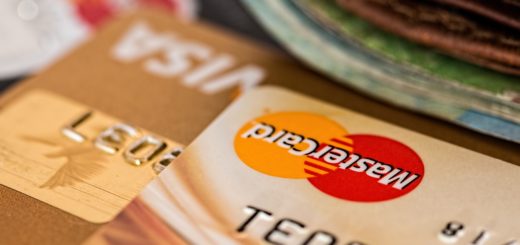Building Business Credit

Starting a business is never easy. There are always so many small details popping up to address! However, there is one major detail that is often at the forefront of all new business owner’s minds: building your business credit. As I am sure you are aware, when you have a business, you must separate your business credit from your personal credit. This means that before you opened, you should have set up a legal business entity. It does not matter if you set up a cooperation, LLC, or proprietorship, you want to ensure the business is 100% responsible for any money that you borrow. Your business must have an EIN (employer identification number) and in no way should your business be connected to your social security number. Your business should open a bank account that is not linked to any of your personal accounts in any way. Be sure that the account has the correct business name. It is also a good idea to have a phone number that is strictly for business purposes and set up in the business name.
There are three main credit bureaus that report on business credit: Equifax, Experian, and Dun & Bradstreet. Unlike consumer credit reports, they are public, and copies are available to anyone who pays the fee. There is no federally mandated free annual business credit report for businesses.
Establishing Credit
How does your new business begin to establish credit? The most frequent piece of advice is to establish one bank loan, 3 business credit cards and 5 vendor trade lines. Everyone know about the first two but not everyone is aware of what a vendor trade line is. A vendor trade line is a report from a merchant or supplier to a business credit bureau about a specific company’s payment history when the supplier or merchant has extended them credit.
Why Credit Cards Are the Key
In essence your business has to establish a credit history. Again reflecting on our road map of 3 credit cards, 1 bank loan and 5 vender trade lines, each time we attain one of these elements it will be easier to attain the next.
If you do not qualify for an unsecured credit card it is relatively easy to get a secured credit card. With a secured card you deposit a small sum of money to a credit account that you can borrow against just like a traditional credit card.
Once you have your credit card, it will be easier to get vendors to extend you short term lines of credit. They will require you to keep your card on file in case you do not make your payments.
After you have paid on your secured credit card for a little while your bank will make it an unsecured credit card. Once this happens it is often much easier to get another issuing bank to give you an unsecured credit card. They can see that your business has established a measure of credibility. Before you know it, you have every thing on the road map to success.
Managing Your Business Credit
Once you have reached this point, there are a few things to remember.
- Keep your credit card balances bellow 50% of your total available credit. This low usage will reflect well on your credit score.
- It is important to make sure you do not have any insufficient funds hit your record for checks that your business writes.
- Pay all your accounts on time.
- Pay all your taxes on time.
If you do this, you will build good credit and before you know it you will be in a position of financial power. Your business will be able to make strategic financial maneuvers at key moments.
Monitoring Your Business Credit
A few things I thought it might be appropriate to point out at few additional things. Business credit is not a substitute for personal credit. Both should be worked on and maintained and will have a bearing on how much you will be able to receive from lending institutions. Often lending institutions will look not only at at the business credit, but your personal credit. This is especially true for newer small businesses. They will frequently request credit information of the corporate officers or principles of a corporation or LLC. So, if you have bad personal credit work on it at the same time you are building business credit.
I have personally seen companies who had a good credit score and report with Dun & Bradstreet without giving much bearing to other sources. Make sure that whoever is reporting on your behalf reports to all three bureaus. Business credit is very different from personal credit. There are laws that govern the accuracy of information on you personal credit that don’t exist for your business credit. This means that it is harder to change negative or inaccurate things on your business credit report. It is important to establish business credit right, right from the start.




